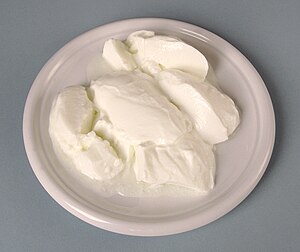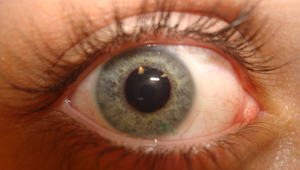 Image via Wikipedia
Image via WikipediaCut Colds By 25% With Yoghurt
Want fewer sniffles? One of the answers to fighting the common cold may lie in yoghurt and its ability to produce antibodies, the "healthy bacteria" needed to boost our immune systems.
Each year, thousands of AUstralians catch colds and get the flu. Colds can occur year-round, but they occur mostly in the winter (even in areas with mild winters). The beneficial bacteria in active yoghurt cultures can help prevent colds (as well as tummy aches, diarrhea, food poisoning, food allergies, eczema, sinus infections, bronchitis, and pneumonia - among other things).
Physician and researcher, George Halpern, of the University of California, believes that it is best to start eating yoghurt at least 3 months ahead of cold season. His study of 68 participants found that eating 2 cups of yoghurt each day for four months boosted their immune systems and gamma interferon in their blood 5 times more than non-yoghurt eaters.
In a year long test, subjects who ate 3/4 cup of yoghurt daily had 25% fewer colds than non-yogurt eaters.
Simin Meydani, Ph.D. recently published his review of yoghurt-related research in the American Journal of Clinical Nutrition which indicated that the health benefits of yoghurt stretch beyond protein and calcium. One of the suggestions was that yoghurt might help one's resistance to immune-related diseases in part due to the live and active cultures
found in yoghurt.
Other preventative measures you can take is to get your yearly flu vaccination and increase your consumption of ginger, garlic, shiitake mushrooms and vitamin C.
So increasing your yoghurt intake before the cold season is a preventative action you can take in fighting the common cold. Make sure label says "live and active cultures" indicative of the "healthy bacteria" that your body needs.
Source: American Journal of Clinical Nutrition; National Yoghurt Association; USA Weekend
Yours To Good Health,
Chris Rogers for Quantum Health
http://www.quantumhealth.com/au/
http://huttriver.blog.co.uk
e
We want your feedback! Let us know your thoughts on today's issue. Email us at: reply@tqg.com.au











